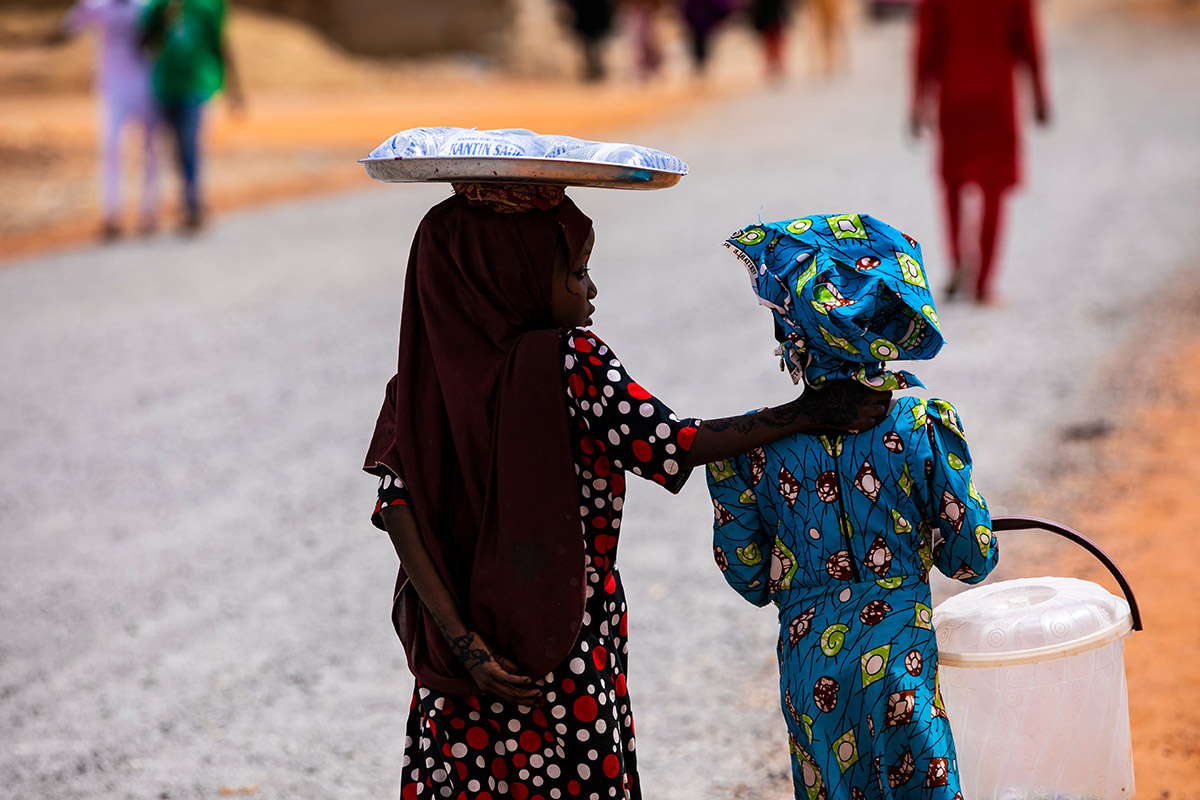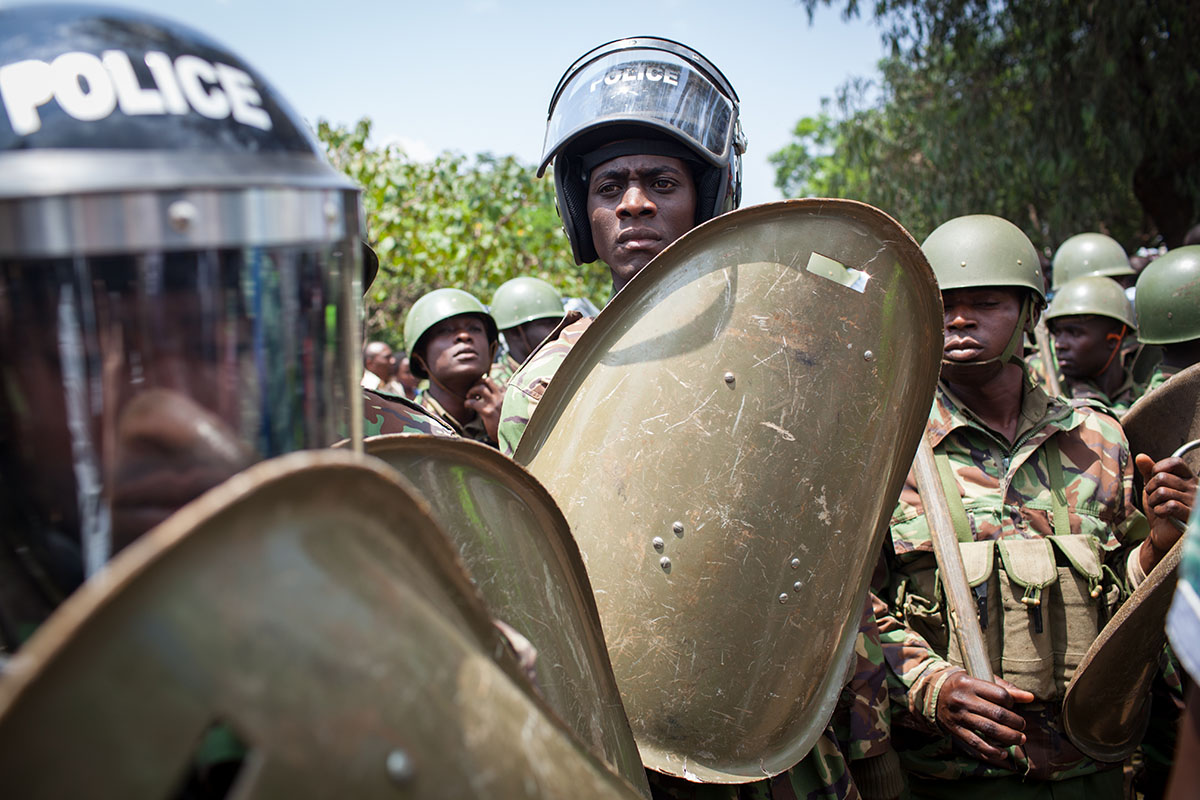“Confidence-Building Measures build peace”
January 27 Building confidence between opposing parties is a crucial step in resolving conflict, writes Christine Shahbenderian, 24, a Commonwealth Correspondent from Nicosia in Cyprus, as she looks at two important examples that employed the strategy.
Building confidence between opposing parties is a crucial step in resolving conflict, writes Christine Shahbenderian, 24, a Commonwealth Correspondent from Nicosia in Cyprus, as she looks at two important examples that employed the strategy.
Nelson Mandela once argued ‘if you want to make peace with your enemy, you have to work with your enemy. Then he becomes your partner.’ Confidence building measures (CBMs) may sound elusive to many, but in essence Mandela’s pearl of wisdom captures the nature and scope of these measures – encouraging political leaders, civil society and businesses that face a conflict situation to co-operate with the ‘other’ side on a plethora of issues with the aim of building peace. By modifying relations and behaviour, one can create a new context for resolving a conflict.
In this endeavour to look at the role and effect of CBMs in conflict settlement, two particular conflict areas are apposite to our understanding – Moldova and Cyprus. The underlying logic lies in the fact that CBMs have been applied for a significant number of years in these two countries, both of which contain politically ambiguous territories. Although arguably the focus here is more Eurocentric, CBMs have become an almost standard acronym in any discourse on conflict resolution not only in Europe but all over the world, whether in Central Asia or the African continent.
Confidence-building measures will, by themselves, not solve a conflict. However, it is hard to argue against the belief that to pave the way for conflict settlement negotiations, it is paramount to build a minimum amount of trust on the elite level as well as on the societal level. Elite-level CBMs and other CBMs involving wider parts of society are therefore crucial to move from pre-negotiations to negotiations, as well as to support any peace settlements.
A striking confirmation of this fact is in the Transdniestrian settlement context, a politically ambiguous territory within the Republic of Moldova. In April 2008, the Moldovan and Transdniestrian sides agreed to create a number of joint Moldovan-Transdniestrian working groups to discuss confidence-building measures in areas that affect the daily life of people on both sides of the Dniester River. This initiative came at a time when mistrust between both sides was deep and regular contact was scarce following the breakdown of official settlement talks in February 2006.
The entire CBM process brought some concrete results such the re-opening in 2010 of the Chisinau-Tiraspol-Odessa railway line, which had been closed since March 2006. More significantly, the process helped to increase communication between both sides and to build the confidence needed to allow them to agree in 2011 to restart official negotiations. Irrespective of the unsuccessful outcome of the negotiations, which were contingent on a number other factors, remarkably enough the official negotiations of 2011 were the first such meetings after a nearly six year hiatus. Improved confidence and trust that allowed such meetings to take place certainly needs to be attributed to the work of the CBMs.
Similarly, long overdue confidence-building measures were introduced in 2003 in Cyprus with the opening of the crossing point in the Green Line, a de facto border administered by the United Nations. Ever since this landmark development in the Cypriot political life, two confidence building packages have been introduced with the resumption of negotiations both in 2008 and more recently in 2015. Examples include the establishment of bi-communal technical committees and the opening of more crossing points all over the island.
It was astutely observed that the failure to obtain the necessary support from the Greek Cypriots for the Annan Plan in 2004 stemmed partly from the deep mistrust that exists towards the Turkish-Cypriot community. Hence, the CBMs were deemed exigent for a future comprehensive conflict resolution strategy. Indeed, they are essential to raise public confidence in the peace process, in parallel with the negotiating process, in order to ensure that as and when an agreement is reached the people will go along with it and make its ratification and implementation a success.
It comes as no surprise when one takes into account the more serious CBMs introduced from the Republic of Cyprus in 2015. Now at a moment in which a peace process aimed at a comprehensive settlement has been re-launched and hopes are cautiously high on its prospects of delivery, CBMs are especially important, in view of the significant lack of confidence that Cypriots have towards each other.
Undoubtedly, confidence-building measures are no panacea to any conflict. More importantly, the sides at stake need strong support from the international community. The OSCE Mission to Moldova as well as the immense funds provided by the European Union towards enhancing the CBMs in Moldova are quite telling of this need. Perhaps, their relentless work and investment towards this goal speak to an even larger issue – the indivisibility of CBMs and conflict settlement.
photo credit: silentcommunication Table 5B: Dialogue via photopin (license)
…………………………………………………………………………………………………………………
About me: I am doing an internship at the Cyprus Red Cross and learning everything about humanitarian diplomacy. I recently completed the MSc in International Relations at the London School of Economics and Political Science.
Ever since I remember, I have been passionate about history, geography, diplomacy and international development. I try to blend these interests and apply my knowledge in promoting effective democratic governance and civic engagement, as well in assisting with projects concerning conflict-resolution and peace-building in my homeland, Cyprus.
…………………………………………………………………………………………………………………
Opinions expressed in this article are those of the author and do not necessarily represent the views of the Commonwealth Youth Programme. Articles are published in a spirit of dialogue, respect and understanding. If you disagree, why not submit a response.
To learn more about becoming a Commonwealth Correspondent please visit: http://www.yourcommonwealth.org/submit-articles/commonwealthcorrespondents/
…………………………………………………………………………………………………………………




